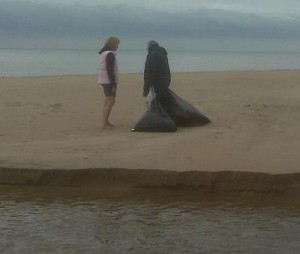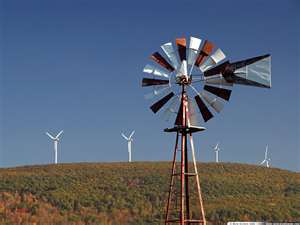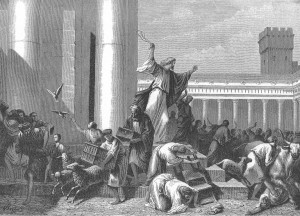After the elderly stranger fell face-down into deep creek water, Mary and I ran to help. But as we arrived, her head lifted above the water, and she began crawling with her heavy garbage bags to the opposite bank.
“Are you all right?” Mary shouted.
“Fine,” she said. “I just need to drip dry.”
Jack had followed her into the water, and when she saw him, she talked to him. “Hey! Get my rake, and bring it to me!” She had dropped the rake during her dunking.
I pulled off my shoes and socks, rolled my pants and crossed the frigid, fast-flowing creek, fishing out her rake on the way. Again she refused my help with her bags, but as she stood, wet from head to toe, she began to talk.
“Many people have been mean to me, from when I was a little girl” she said. “My parents locked me in a room to keep me from hugging Charlie the horse. They were worried I’d get kicked.”
She told stories of her husband and son, both deceased, but assured me they were caring for her from the hereafter, sending signals when they were near her. She described a babysitting job when the doorbell had rung twice, but there was no doorbell. “That,” she said, “was my husband and son.”
“I’m 76 years old now,” she concluded, “and God has always watched out for me.”
She said she lived six miles from the lake and was planning to walk home after she’d stowed her gear. “Six miles?” I said, alarmed, worrying about her being soaked and cold.
“It’s good to keep moving,” she said. “Besides, I’ve had the pneumonia shot, so I can’t catch that.”
As she bent down for her water-logged garbage bags, I reached for one of them, but she wrestled it away. “No. I’ll do this,” she said. Mary, on the other side of the creek (taking phone pictures) worried she might strike me.
Before she left, I asked her name. “Thelma,” she said.
As she shuffled toward the dune, Mary and I bolted for home, hoping to quickly drive back with dry clothes, a bit of food and a six mile lift. When we returned, we walked the dunes, checked the yards and drove the streets. But she had vanished.
Both of us were disturbed for hours after our encounter, wondering what to do or think. We agreed she was an excellent example of perseverance, but toward what end? Scripture praises perseverance, but only when the object of our quest is a worthy one: godly character, or the Lord’s calling, or holy living.
Some people show determination, but not toward wise behavior. Instead they persevere in disobeying God or trying to live independently of him, or they show determination in giving in to sin. That kind of perseverance is rebellion. In Thelma’s case, she had the right idea, but the wrong goal. Working hard is a virtue, but risking drowning for the sake of two garbage bags full of leaves is foolishness.
So how do we know if we’re persevering after a worthwhile cause?
“The one who looks into the perfect law [God’s Word], the law of liberty, and perseveres, being no hearer who forgets but a doer who acts, he will be blessed in his doing.” (James 1:25)




